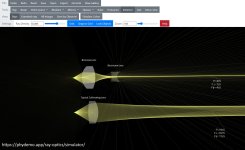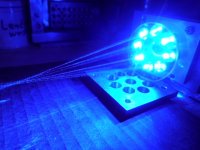loreadarkshade
Well-known member
- Joined
- Dec 14, 2020
- Messages
- 479
- Points
- 93
I was wondering how possible this would be. I have thought about it for a while now but have no way of executing this.
Has anyone ever messed around with lenses like this to collimate the laser even further?
I don't know much about optics, but isn't this how the beam expander works?
Why hasn't this been done before?

Has anyone ever messed around with lenses like this to collimate the laser even further?
I don't know much about optics, but isn't this how the beam expander works?
Why hasn't this been done before?






